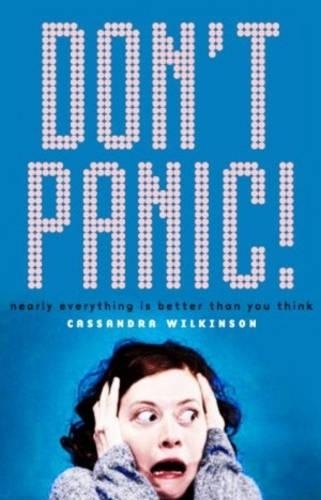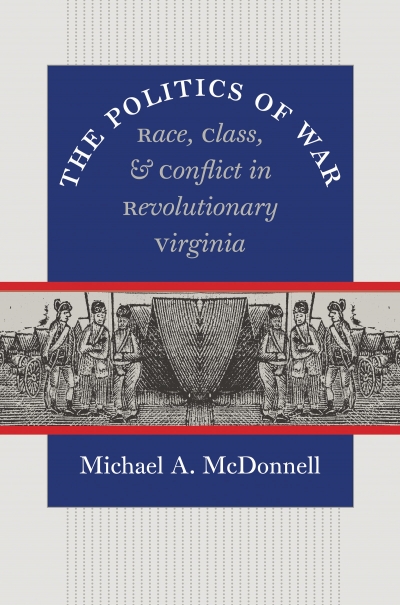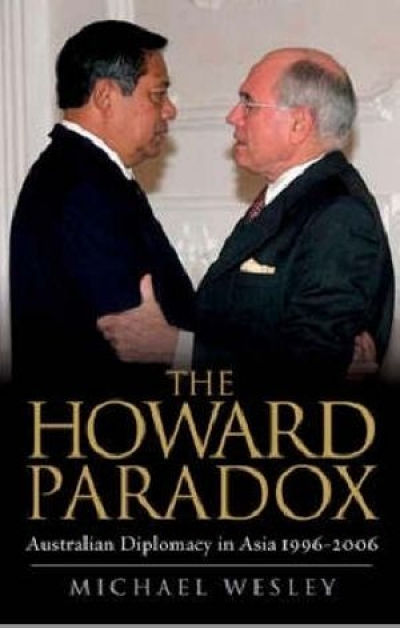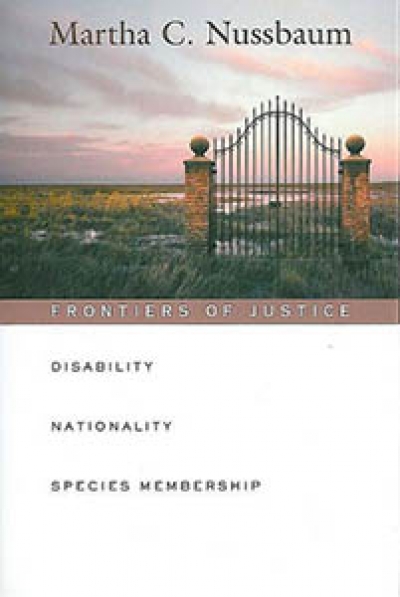Politics
Whoever wins the federal election later this year, it is likely that at some stage in 2008 we will be looking back and post-mortemising the Howard government. One strand in the reviews will surely be the Howard government’s impact on the quality of public debate in this country. Whether it has been a contributor to Howard’s long ascendancy (and I think it has), this government’s ability to goad large numbers of academics and commentators into unbalanced and increasingly hysterical denunciations of nearly all aspects of its operations is unprecedented in Australian political history.
... (read more)Don't Panic!: Nearly Everything is Better Than You Think by Mark Cully
After departing as minister for finance from the Hawke government in 1988, Peter Walsh began a weekly column for the Australian Financial Review under the byline ‘Cassandra’, named after the Trojan princess who was condemned by Apollo to be a teller of truths but fated not to be believed. Eventually, the bile became too much for Fairfax. Happily, Christopher Pearson offered Walsh a spot at his comely home for curmudgeonly old men, the Adelaide Review, for several more years. Walsh was marvellous. His articles were renowned for skewering the platitudes of the mushy left. He hollered like a Baptist at Country Party types aiming to get their gnarled hands into Treasury coffers.
... (read more)The Politics Of War: Race, Class, And Conflict In Revolutionary Virginia by Michael A. McDonnell
Over the past four years, we Australians have had considerable experience of the conflicted, and sometimes agonising, politics of war. In this study, Michael A. McDonnell, a historian at the University of Sydney, examines the unanticipated social and political contestations aroused by the demands of another war. In the late eighteenth century, Virginia endured a six-year struggle against the imperial rule of Britain. A settled class of wealthy gentlemen planters who had previously assumed the right to leadership came to find that role questioned in a wholly new politics of war. Middle- and lower-class Virginians began to ask them: how will you distribute the burden of the war equitably across society? Should the wealthy planters be exempt because of their property holdings? Who is to fight and die in this war? Who is to control recruitment?
... (read more)The Howard Paradox: Australian diplomacy in Asia 1996–2006 by Michael Wesley
Canberra’s week of the two presidents – October 2003 – brought the unprecedented spectacle of George W. Bush and China’s President Hu Jintau speaking just a day apart to joint sittings of the Australian parliament. The coincidence elegantly dramatised the central questions for Australian foreign policy: how we manage our relationships with our superpower ally, how we live with our neighbours in Asia, and how we get the balance right between them. This has been the essential challenge for every Australian government since World War II. In his important new book, The Howard Paradox, Michael Wesley focuses on one side of that balance – relations with Asia – and on the Howard government.
... (read more)Frontiers of Justice: Disability, nationality, species membership by Martha C. Nussbaum
The concept of justice, like all the fundamental philosophical concepts – meaning, truth and so on – is perplexing. Justice has something to do with the distribution of ‘goods’ or benefits and ‘bads’ or burdens. Retributive justice aims to inflict a just burden – punishment – on the delinquent, or to take something away (‘make the offender pay’). Corrective justice, in the form of tort law, prescribes how victims who have lost goods unfairly should be compensated. Social justice is concerned with the fair or just distribution of social goods within a political dispensation. The definitional circularity here is obvious, and it is not clear that we can escape it.
... (read more)Tom Uren was a prisoner of war on the Burma Railway during World War II, a professional boxer in his youth and one of the dominant voices of the Australian left for much of the second half of the twentieth century. Martin Flanagan offers a wide-ranging reflection on Uren’s life, drawing on his experience growing up in the working-class Sydney suburb of Balmain to his days as minister for urban and regional development in Gough Whitlam’s government. In doing so, The Fight conveys the resilient and visionary spirit that was central to Uren’s character. But Flanagan’s stated purpose is much more than biographical; his aim is to show the need in contemporary Australian society for the passion and vision Uren displayed throughout his life.
... (read more)Silencing Dissent: How the Australian government is controlling public opinion and stifling debate edited by Clive Hamilton and Sarah Maddison
It is little appreciated just how much power and influence are wielded by a successful Liberal prime minister, success being measured entirely by electoral victory. Whereas a Labor prime minister has a caucus, factions, the ACTU, a not always co-operative national executive and a sometimes fractious national conference to exert countervailing influence, a conservative leader is remarkably unfettered. The party, and indeed the government, becomes an extension of him, a mere appendage.
... (read more)Mortgage Nation: The 2004 Australian Election edited by Marian Simms and John Warhurst
Australian elections are not what they used to be. The policy debates have been reduced to ten-second audio grabs. The big public rallies have been replaced with pre-packaged and scripted set-piece television events. According to the majority of the contributors to this account of the 2004 election, the passions that Australian voters once carried to the polling booth have been swapped for something much more prosaic. At the last election, our vote was apparently determined largely by interest rates and by mortgage costs. It seems that voters are now less animated by ‘It’s Time’ and more by ‘It’s Mine’.
... (read more)Neville Wran was nothing if not sartorial. He represented the new generation of politicians – dapper, immaculately tailored, effortlessly elegant – and stood out from his Labor colleagues in their crumpled suits and gaudy ties. His dress sense was not merely a matter of personal taste but also a political statement. He once appeared on the podium of a Labor party conference perspiring uncomfortably in the glare of the arc lights. A colleague leaned over and urged him to take off his jacket. Wran retorted, ‘What! And look like a Labor politician.’ It was classic Nev.
... (read more)Not long before his election as Israel’s prime minister in May 1999, the country’s former military head Ehud Barak was asked by a journalist what he would have done if he had been born Palestinian. ‘I would have joined a terrorist organisation’, came the blunt reply. Barak, of course, had spent a good deal of his life working out how to kill Palestinians. So his was a decidedly candid acknowledgment that one’s perspective is highly coloured by circumstance.
... (read more)








